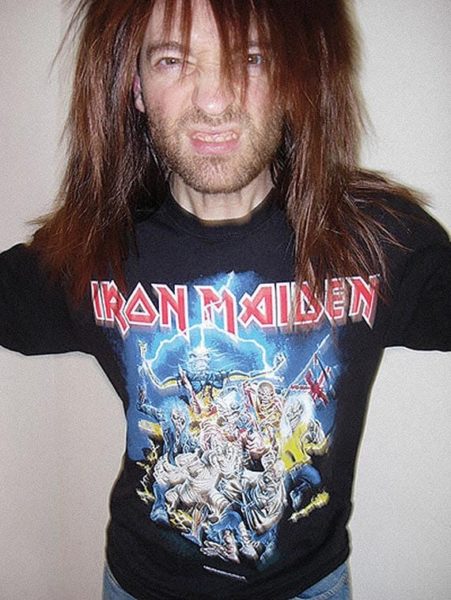All the half-baked truisms about “creative control” and “artistic license” still resonate for quite a few artists in hip-hop, and it seems like all of them have, at some point or another, recorded for Los Angeles’ Stones Throw records. Case in point: the late J Dilla, who died this past February only three days after the label released his brilliant solo record Donuts. In the late ’90s Dilla was one of the most sought-after producers around, briefly tasting stardom with groups like A Tribe Called Quest and Pharcyde. But there was something a bit off-kilter residing deep in him, something that big budgets and videos simply couldn’t offer. “He was accustomed to working for Janet Jackson and getting six figures [a track],” Stones Throw founder, DJ and producer Peanut Butter Wolf recalled in a recent interview. “Basically everyone was knocking on his door to work with him. He saw something in Madlib and Stones Throw.”
Over the past ten years, Stones Throw Records has offered a welcome home to the wayward souls who clutter modern music’s outer space-ways. There’s the producer and rapper Madlib, who seems to value beat-making more than speaking or breathing; some of MF Doom’s strongest material has come as part of the label’s odd squad. And then there are names like outsider rocker Gary Wilson, funk revivalists Breakestra and ’60s psychedelic jazzbos Stark Reality, all of whom make as much sense on Stones Throw as up-and-coming, on-the-corner rappers like MED or Roc C.
The label’s story begins many years ago, with the most charming manifestation of a child’s creativity — an imaginary monster. As the story goes, growing up in ho-hum San Jose, California in the ’80s, Chris Manak knew a kid who possessed a highly irrational fear of a mythical creature named the Peanut Butter Wolf — it was worse than death. Even as Manak grew older and became infatuated with the adult-oriented attitudes of hip-hop, he remained entranced by this vestige of child’s-eye surrealism, adopting the moniker as his own. Even when he and his childhood friend Charles Hicks — otherwise known as the punchy, brash rapper Charizma — hit the road in the late ’80s and early ’90s as an up-and-coming duo and favorite of Bay Area radio’s pioneering Wake-Up Show, Manak was the goofy one in the back with the weird name. They were signed briefly to Hollywood Basic, a short-lived merger of Disney and hip-hop that yielded Organized Konfusion and Zimbabwe Legit, but their record was shelved. Frustrated, Charizma’s focus erred and in 1993, in a freak accident, he was murdered in East Palo Alto, California.
For a while, Wolf retreated into himself and quit music — after all, his label deal had soured him to the industry and he had buried his close friend. But in 1996, after some well-received recordings for a variety of American and British instrumental hip-hop labels, Wolf decided to give it another go, partly in honor of Charizma. This time, everything would be done on his own terms. Artists would get complete control. Packaging and artwork would be carefully conceived. He and Charizma would resume their dreams of world domination. I’m sure you’ve heard this kind of thing before. But ten years ago the idea of a do-it-yourself independent hip-hop label was a bit fresher than it is today. (The landscape and dollar bins were still cluttered — but it was a different kind of clutter.) Hip-hop — always dead, always in need of renewal — was winning a new generation of converts thanks to indies like Solesides and Rawkus. Little distinguished Stones Throw’s first few releases but through the mid ’90s, as labels folded and others started up, Stones Throw — helmed by Wolf, someone with little time for the particulars of the business — managed to strive on.
A lot of this was due to Wolf’s laissez-faire attitude, a charming flakiness that leaves decisions other operations might obsess over to chance, fate and whim. There’s a reason Stones Throw has survived hip-hop’s above- and underground set changes with their cavalier attitude intact — they simply don’t notice. Consider Wolf’s relationship with Madlib, which defies logic or business sense. In 1999, Wolf released Soundpieces: Da Antidote!, the debut album from the Lootpack, Madlib’s group with rapper Wildchild and DJ Romes. It was a very strong album, but few could have guessed then that this would be the first of (approximately) ten thousand Madlib releases over the next few years. Wolf continued to allow Madlib to release whatever he wanted through the label, even though short-attention-spanned, helium-swallowing absurdist Quasimoto; stoned, jazz-fusion one-man-band Yesterdays New Quintet; DJ Rels’ throwaway approximations of U.K broken-beat; and the recent Beat Konducta series’ stoned, erratic instrumental snippets for imaginary films didn’t exactly inspire confidence. But the thing is, it worked. Nowadays you can hear everyone from Pete Rock to Jay-Z wingman Just Blaze shouting-out Madlib and his multitudes.
In the late ’90s, inspired more by escalating rents than any sense of scene, Wolf packed up and moved from San Francisco to Los Angeles. Soon, Eothen “Egon” Alapatt — a world-famous collector, DJ and reissue specialist — joined him and the label became as wildly diverse and exciting as their pooled record collections. Egon has been one of the label’s best-kept secrets, beefing up Stones Throw’s reissue wing with releases like the funk compilations Cold Heat and The Funky 16 Corners and the early-’80s Connecticut rap retrospective, The Third Unheard.
Two of the label’s most recent releases speak to Stones Throw’s sense of history. “A little bit of weed is all I need,” Dudley Perkins croons on “Funky Dudley,” the lead single off his latest album, Expressions (2012 a.u.). Dudley is the nom de plume of Declaime, one of the many lazy, drawling southland rappers Madlib has nurtured over the years. As Perkins, Declaime is all ruffles, sequins and sing-song grit, wooing like a low-budget knock-off of a ’70s soul man. “Testin’ Me” wobbles along with a busted piano, Dudley’s heartfelt dum-da-dums and stressed-out, God-is-good verses that sound best sung, not rapped. He’s his own guest rapper on “Come Here My Dear,” a bit of hazy, cosmic soul, while the sunny “Separate Ways” fixes on the weirdest parts of D’Angelo.
Another gem is singer Georgia Anne Muldrow’s excellent EP, The Worthnothings. The daughter of a musical couple — her mother performed with Pharoah Sanders and her father created instruments for Eddie Harris — Muldrow plods, rages and smolders against a backdrop of geeky free jazz, ranging from high to low with a thrilling recklessness. “Reality distracts me from my dreaming,” she laments on “Cool World,” sounding a bit like Sun Ra Arkestra member June Tyson. It’s a thrilling new direction for a label that traffics in left turns and daydreams. As Muldrow concludes: “Respect the illusions.”

